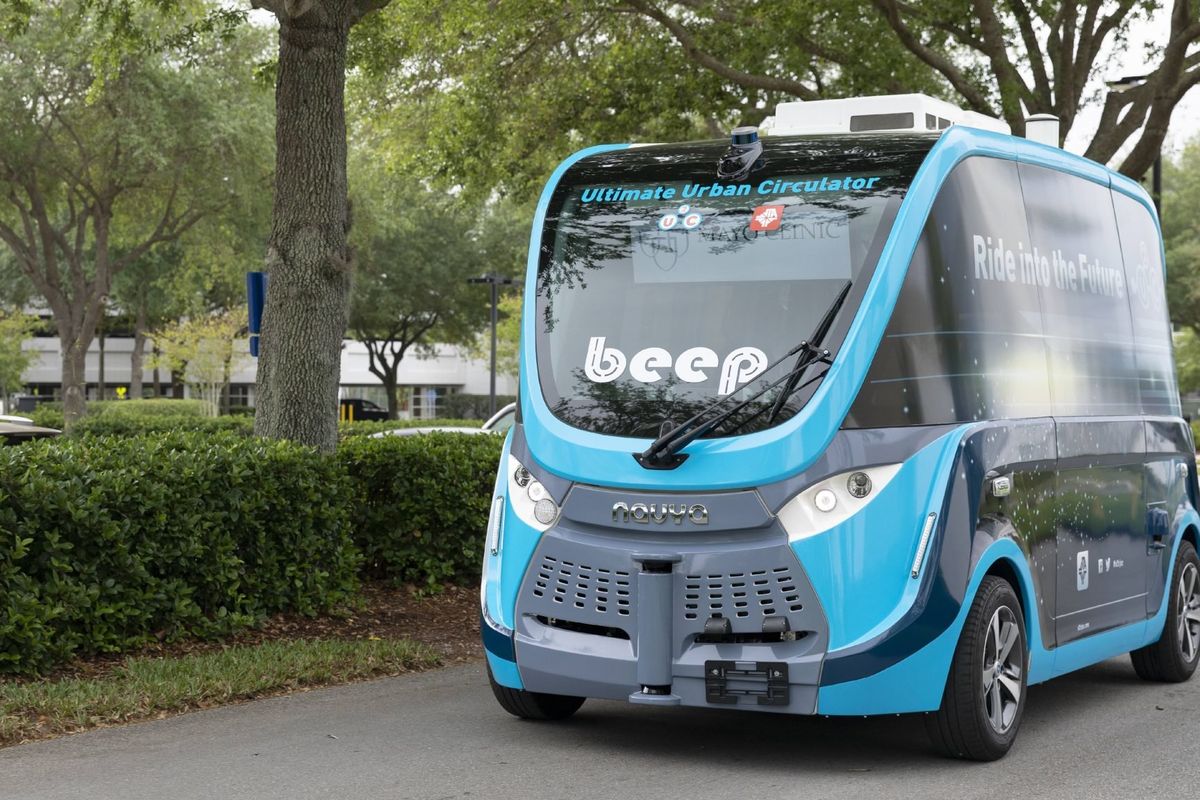Self Driving Cars

Mayo Clinic
Autonomous vehicles are being used to transport COVID-19 tests
Four autonomous vehicles are shuttling COVID-19 tests at Mayo Clinic in Florida

Four autonomous vehicles are shuttling COVID-19 tests at Mayo Clinic in Florida
A fleet of autonomous vehicles is being used to move COVID-19 tests from a drive-through Florida testing site to a nearby Mayo Clinic lab for analysis.
The vehicles have been provided by autonomous startup Beep and are built by Navya, whose driverless buses have been used to transport passengers on the public roads of Las Vegas since 2017.
Read More:
The Mayo Clinic service, which began on March 30, is jointly run by Jacksonville Transportation Authority, Beep, Navya and Bestmile, another autonomous mobility company. They jointly claim the lack of a driver and anyone else onboard means medical staff are less likely to be exposed to the highly contagious coronavirus. It also frees up staff time that can be dedicated to the direct treatment of patients, Mayo Clinic said.
"This development is a historic moment for the Jacksonville Transportation Authority," said authority CEO Nathaniel P. Ford Sr, adding: "We are leveraging our learnings from three years of testing autonomous vehicles...Our innovation team saw this as an opportunity to use technology to respond to this crisis in Northeast Florida and increase the safety of COVID-19 testing."
However, this isn't the fully autonomous transportation system it first seems. Every time one of the vehicles drives itself between the test center and clinic, it is followed by a support car with its own driver, as can be seen in the video above. Additionally, the self-driving shuttles are being monitored from a mobile command center.
There are also medical staff at the start and end of each journey to load and unload tests from the vehicle.
They are driving on a relatively simple route, which Mayo Clinic describes as being "isolated from pedestrians, traffic and staff."
All that said, it is still interesting to see autonomous vehicle technology used in this way, and any effort to reduce medical staff exposure to the novel coronavirus is certainly a good thing. It is also good to see the technology used to free up staff resources and allow them to continue the jobs that robotics and autonomous tech can't help with.
Although limited in its abilities for now, the pilot program paves the way for future uses of autonomous technology, hopefully where the support SUV is no longer required.
Roav Viva by Anker, Alexa-Enabled 2-Port USB Car Charger in-Car Navigation, Compatible with Android and iOS Smart Devices
GearBrain Compatibility Find Engine
A pioneering recommendation platform where you can research,
discover, buy, and learn how to connect and optimize smart devices.
Join our community! Ask and answer questions about smart devices and save yours in My Gear.
